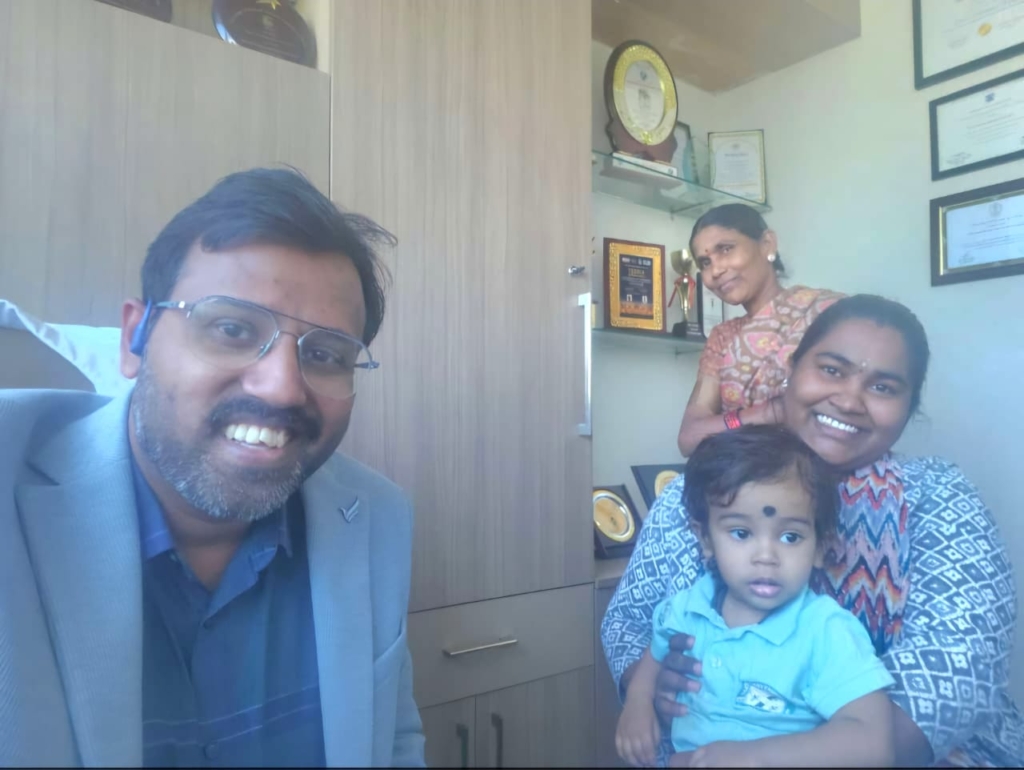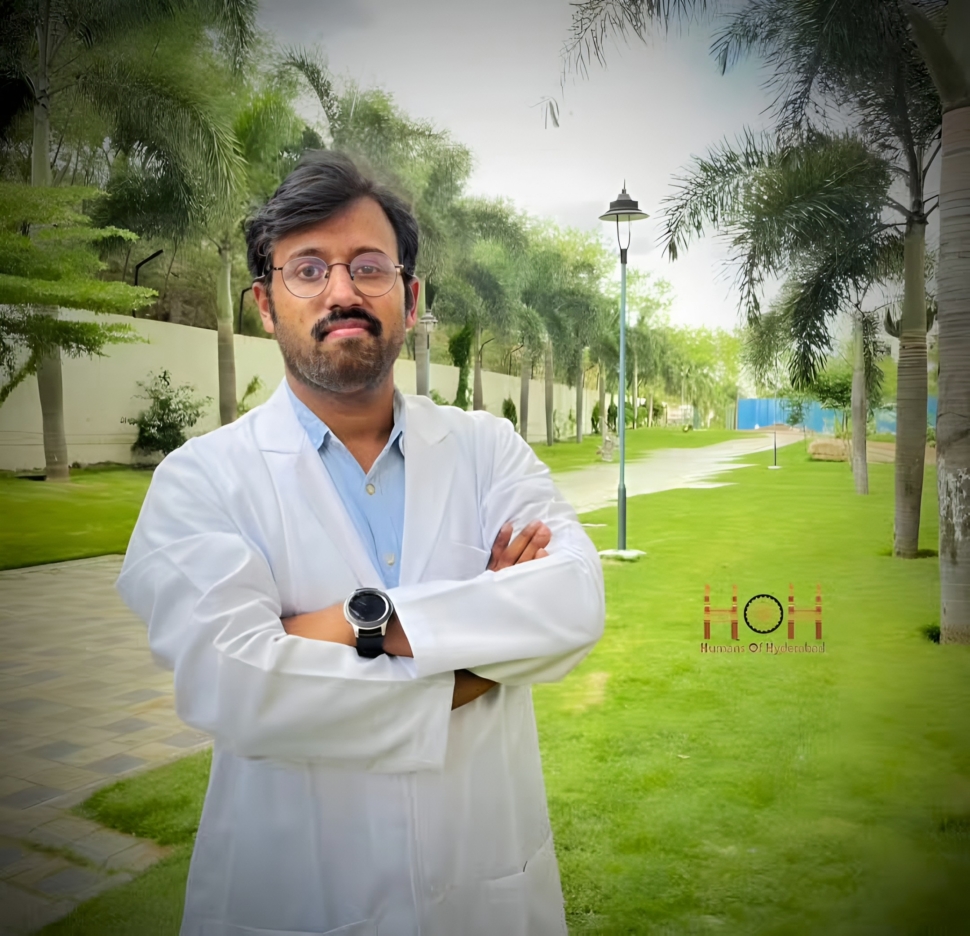“I grew up in an Army family. My father was posted in Jammu & Kashmir, and I remember watching a neurosurgeon save a soldier who had taken a bullet to the head. That single moment, in the middle of chaos, stayed with me for years. I knew then—I wanted to become a neurosurgeon.
But the path to paediatric neurosurgery wasn’t immediate. I trained at NIMS, Hyderabad, which is among the top institutes for neurosurgery in India. It was there that I started getting drawn toward the paediatric side of the field. Treating children isn’t like treating adults. With kids, it’s never just about the illness—it’s about a family’s hopes, emotions, and everything they’ve held onto. One surgery can change the entire future of a child and their family. And that responsibility made me choose this field for life.
I’m Dr. K.V. Shivanand Reddy, and today I’m one of the youngest neurosurgeons in the country to have completed a double FRCS in Neurosurgery (UK), along with a fellowship in Paediatric Neurosurgery. Very few specialists in India work exclusively on neurosurgical conditions in children—and that’s exactly what I’ve committed myself to.

Over the years, I’ve operated on hundreds of paediatric cases, from one-day-old newborns to teenagers, with conditions ranging from congenital defects to trauma-related issues. But some cases stay with you forever.
A few months ago, I was contacted about a one-year-old child with a swelling in the back since birth. His family was very poor and had gone to a local “doctor” in their village. That unqualified person—without understanding the condition—inserted a needle into the swelling. It was a congenital spinal defect. The needle caused an infection, leading to pus formation and permanent paralysis of the lower limbs. I was shocked when I first saw the child at Continental Hospitals in Hyderabad. His parents had waited 15 years for him. He was their only male child. And now, because of one wrong intervention, the damage was irreversible.
We immediately took him into surgery, removed the infected tissue, and stabilised the spine. We are now hoping for a positive recovery. But in neurosurgery, especially in children, some damages can’t be undone. This case broke me, not just as a doctor but as a human being.
This is what pushed me further to question the state of healthcare in our country. We talk about increasing medical seats and building super-speciality hospitals, but we rarely focus on quality or grassroots-level care. There are many real doctors today struggling without jobs in cities, while in villages, quacks are causing permanent damage to lives. The gap is terrifying.

That’s why I started conducting monthly paediatric neurosurgery camps in remote parts of Adilabad, entirely at my own expense. I meet children with cerebral palsy, birth defects, and epilepsy—conditions that could’ve been prevented or treated early if proper medical attention was given. Most of these cases are the result of delivery-related injuries or negligence during birth. It’s heartbreaking. And this is why awareness, early diagnosis, and access to qualified care are everything.

Along with my clinical work, I also run an NGO dedicated to supporting children with epilepsy and other neurosurgical conditions. Through this, we aim to provide guidance, connect families with treatment, and build awareness on paediatric neurological health.
There’s a long way to go. But if social media can be used to share misinformation, it can also be used to spread the right information. That’s the change I want to be part of. I want parents to learn what signs to watch out for, when to seek help, and how to distinguish between real and fake advice.
Because in the end, every child deserves a chance. And every parent deserves the truth.”
